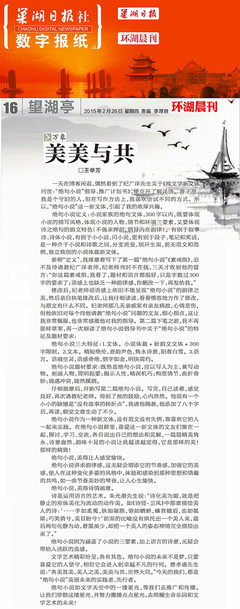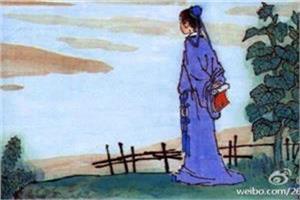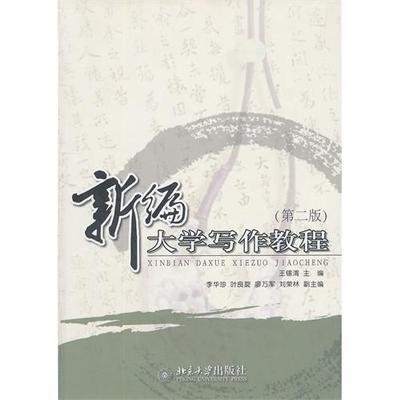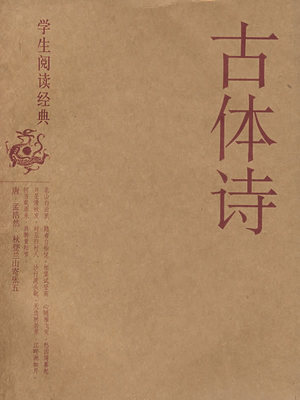Free Verse:自由诗A kind of poetry that does not conform to any regularmeter: the length of its lines is irregular, as is its use ofrhyme----if any. Instead of a regular metrical pattern it uses moreflexible cadences or rhythmic groupings, sometimes supported byanaphora and other devices of repetitions. Now the most practicedverse form in English, it has precedents in translations of thebiblical Psalms and in some poems of Blake and Goethe, butestablished itself only in the late 19th and early 20th centurieswith Walt Whitman, the French Symbolists, and the poets ofmodernism. Free verse should not be confused with blank verse,which does observe a regular meter in its unrhymed lines.
自由诗是对格律诗的革命,它把韵脚和韵律一齐推翻,无拘无束地抒发诗人的感情,以免因拘于形式损伤了内容。自由诗虽然不要韵脚,不讲韵律,但还是注意诗的节奏的,只不过不求助于老一套的传统格律,在形式上束缚自己,而是向另外的方面寻找,写诗时,节奏随着诗请的发展,在诗的语言中自然流露而已。自由诗标榜自由,摆脱了格律诗格律的束缚,却没有打破分行写的习惯,仍旧沿用传统诗的旧形式,这可能也是一种自由吧。
Moonshine废 话
Richard Murphy
Tothink要想
I mustbe alone:我得一个人;
To love要爱
We mustbe together.我们得一起。
I thinkI love you我想,一个人时

When I’malone我对你的爱
Morethan I think of you多于我们一起时
Whenwe’re together.我对你的想。
I cannotthink没有爱
Withoutloving我就不能想
Or love而没有想
Withoutthinking.我也不能爱。
Alone Ilove 一个人时我爱
To thinkof us together;想着我们在一起
TogetherI think 一起时,我想
I’d loveto be alone.我爱独自一个人。
(黄杲炘 译)
 爱华网
爱华网


